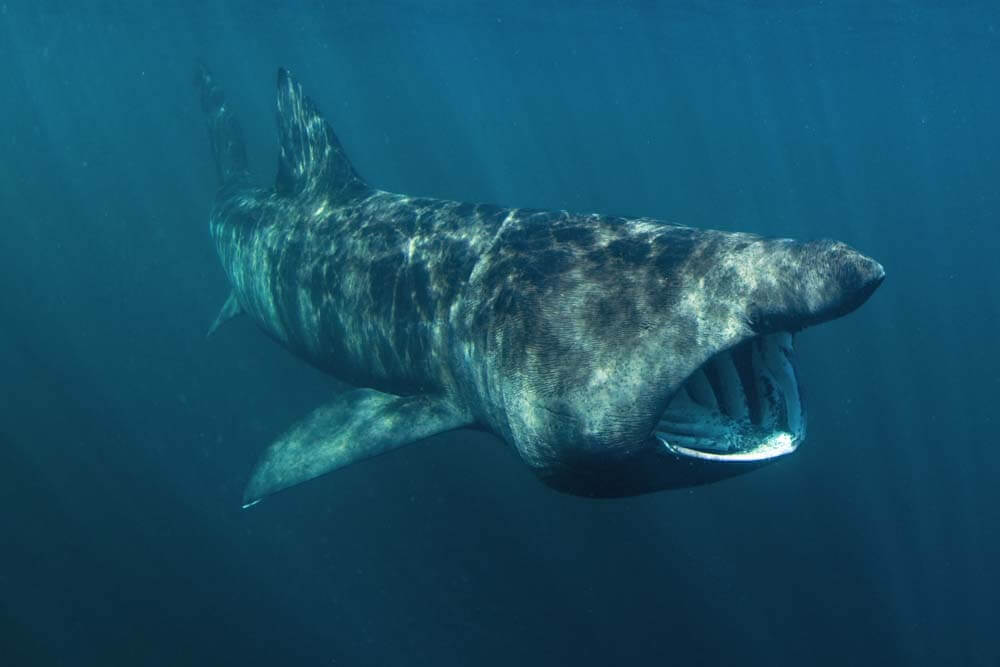
Research led by scientists from the University of Aberdeen in Scotland, UK, suggests that basking sharks may travel extended distances and gather in family groups, according to a new study published in Scientific Reports.
Basking sharks (Cetorhinus maximus) are the second-largest species of fish after the whale shark and, like the whale shark, are filter feeders. They are distributed around the world in temperate waters and spend much of their lives alone, but over the summer months gather in numbers in areas rich with plankton, where they display social and – possibly – mating behaviour patterns.
While the basking shark is known to range across vast distances, a lack of research into its movement patterns could not confirm if the aggregations were a deliberate seasonal migration to a favoured location, or the result of random movement leading to an area rich in food. Satellite tagging has shown that the behaviour is increasingly likely to be migrational, with documented evidence of two tagged sharks returning to within 30km of the same area of the Northeast Atlantic. This information is particularly important for conservation of the species, as it may assist with the location and extent of new Marine Protected Areas.

Satellite tagging can provide valuable location data but is limited in scope because the tags are temporary. To confirm whether or not an individual shark had returned to the same area every year, the researchers took genetic samples from sharks during the aggregations over six years between 2009 and 2014.
The genetic samples were taken by swabbing the mucus which covers the skin of the sharks, described to the BBC interview as ‘a breakthrough’ by Dr Lilian Lieber of Queen’s University, Belfast, one of the report’s lead authors. ‘We routinely swabbed aggregations of sharks quickly and with minimal disturbance, to obtain genetic profiles of individuals travelling together.’
The sampling not only confirmed that individual animals displayed ‘inter-annual site fidelity’ – in other words, they came back repeatedly to the same area – it also showed that sharks gathering in each location were ‘on average more related than expected by chance’. The study suggests that the familial relationship between individuals gathered in a particular location may be the result of
‘Perhaps relatives hang out together,’ Dr Catherine Jones, co-author of the study, told the BBC, ‘which could facilitate learning migration routes and encourage other cooperative behaviours. This means there’s more going on in basking shark aggregations than first appears.’


